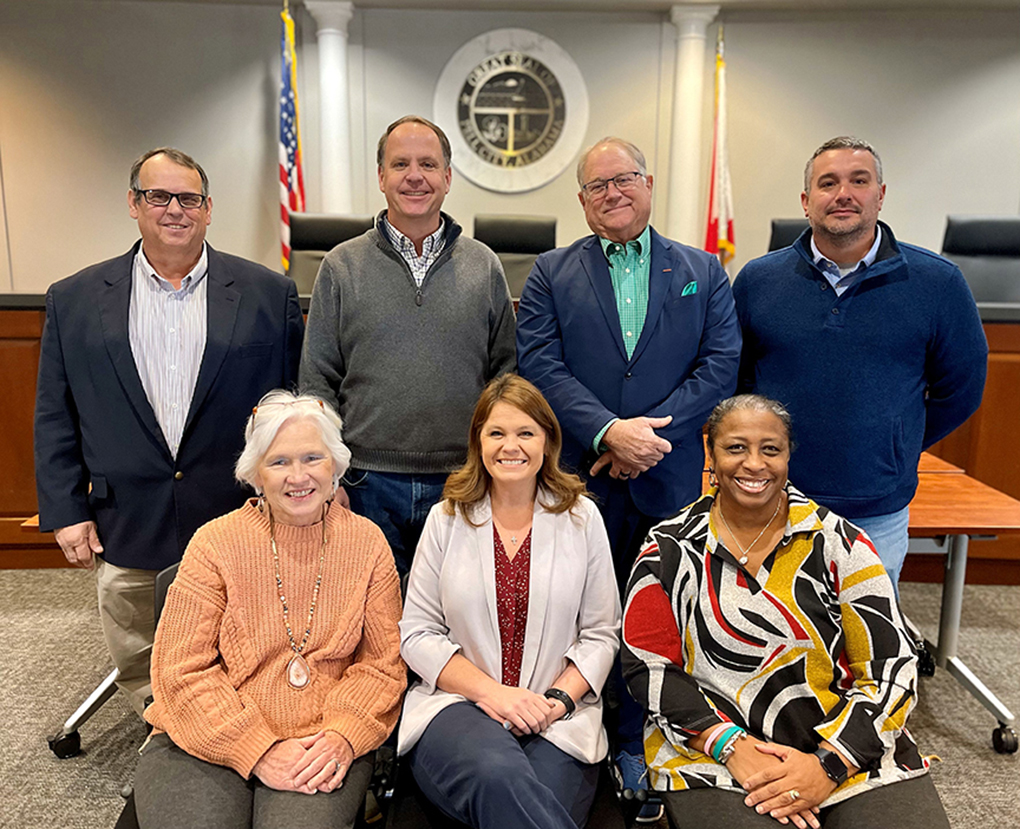More than 7,000 churches leave UMC as it prepares to take on social issues in 2024
Published 1:45 am Tuesday, January 9, 2024
Amid shifting views on social issues, a mass exodus of congregations from the United Methodist Church has essentially concluded at its Dec. 31, 2023, deadline.
Across the country, more than 7,600 churches, or approximately 25 percent, have left the UMC, driven by divisiveness about LGBTQ issues and local control among other issues. The majority of the disaffiliated churches are in the South.
According to the Lewis Center for Church Leadership, the South Central and Southeastern Jurisdictions comprised 52 percent of UMC in 2022, and 84 percent of the disaffiliations that year. Through June 2023, there were 56 percent more disaffiliating churches from the southern jurisdictions than from the other three jurisdictions combined.
“If you think about where the power centers are for movements toward gender inclusion, sexual orientation, inclusion in light of gender and sexual orientation, the South is not a stronghold on that front,” said Richard Newton, a professor of religious studies at the University of Alabama. “Sort of traditional conservative values are more regionally prominent in the South as it is going to be in the Northwest or the Northeast. and so in the South, where groups are more likely to hold on to sort of quote-unquote, ‘traditional values,’ this is a really powerful rallying cry for them.”
First Methodist Church of Valdosta, formerly First United Methodist Church of Valdosta, officially left the UMC last summer. The church was part of the South Georgia Conference of the United Methodist Church, which in May 2023 voted on 193 church disaffiliations from the conference. More than 270 churches have remained in the South Georgia conference. In the North Georgia conference, 262 churches left the UMC and approximately 440 churches remained.
FMC Pastor Anthony McPhail said much of the church’s some 700-member congregation’s decision to leave UMC was due to the uncertainty of future changes within UMC, especially as it appeared UMC could eventually change its doctrine to accommodate more liberal views pertaining to sexuality.
“It’s very likely that the United Methodist Church is going to go in a more progressive direction in terms of their views on marriage and ordination,” McPhail said. “And our congregation is made up of primarily — not entirely — but primarily people with a more traditional view of marriage.”
As in previous conferences, the General Conference — the body that sets official policy and speaks as the entire denomination with delegates from with delegates from the U.S, Africa Asia and Europe — is expected to hear proposals at its conference this year related to LGBTQ issues and dropping prohibitions related to human sexuality. The issue is also playing out in other mainline denominations including Episcopalians and Presbyterians, Newton noted.
According to the UMC, there are items that could authorize clergy who choose to do so to preside at same-sex weddings or union ceremonies, allow homosexuals to serve as clergy and proposals to drop the statement “the practice of homosexuality is incompatible with Christian teaching.”
Another proposal would drop the prohibition on annual conferences and general agencies to provide funding for any activity or publication that promotes “the acceptance of homosexuality,” according to UMC.
Such proposals have been defeated in the past.
“Nothing’s changed in terms of our stances on the topics everyone’s talking about,” said the Rev. Scott Hagan, superintendent for the UMC’s Coastal & Northeast Districts of the South Georgia Conference. “But even a prediction of imminent future change will have to go through delegates who are led by the Holy Spirit.”
McPhail said another driving factor in the church’s disaffiliation was accountability issues among denominations in UMC, implicating the appointment of gay clergy persons in other conferences in the U.S.
“There were accountability issues in how the church discipline was being enforced or not enforced. and we just felt that systematically, the United Methodist Church was not structured in a way to operate the way that they say they wanted to operate. That essentially the system was broken, and our congregation was not comfortable remaining a part of a system that was that broken without much hope that it could be fixed.”
Regional jurisdictions are responsible for bishops in their districts and bishops over conferences. Many conservative churches felt that the UMC wasn’t enforcing the church’s Book of Discipline in sanctioning homosexual clergy or those who perform same-sex marriages.
“There were some conferences where the bishops were allowing practices that were contrary to what is in the church Book of Discipline,” McPhail said. “And there was no accountability within those conferences, and then subsequently, no accountability for the bishops within their regional jurisdiction.”
Hagan said it is widely agreed that accountability for rules that are in place are important, but the few instances of violations are not the norm of UMC.
“And accountability is going to be important going forward,” Hagan said.
First Methodist Church of Valdosta was one of several that branched off and joined the Global Methodist Church, which is still being put together. McPhail said GMC’s structure is less top-down bureaucracy, compared to UMC’s government-like structure.
UMC’s General Conference typically meets every four years, but its 2020 conference was postponed due to the pandemic. The conference this year will be the first since 2016, although a special meeting was called in 2019 to deal with some of the divisive issues among the UMC. At that time, legislation was approved to allow churches to disaffiliate with the UMC and keep their property after fulfilling certain financial obligations by Dec. 31, 2023.
Every four years the UMC’s Book of Discipline is updated.
“There is no way to predict at this time exactly how that General Conference may respond to proposals related to restructure or separation,” the UMC states on its website. “Currently no single proposal appears to have enough support to pass. and based on what is known about the delegations to the next General Conference to date, it seems unlikely that the current policies regarding human sexuality will be substantially altered.”
However, Newton said that change may be necessary to help increase UMC membership, which has declined significantly, as have other denominations in recent years.
Since its formation in the late 1960s, UMC membership has declined by nearly 4 million.
“The United Methodist Church is probably going to lean left and they’re going to do so because they need members, and young people, generally speaking, think it’s stupid to exclude on these matters,” Newton said. “If the United Methodist Church wants to grow with a new generation, they’re probably going to have to lean into that sensibility.”
A majority of churches that have disaffiliated from UMC have a male lead pastor and are predominately white congregations, though it should be noted that an estimated 90 percent of UMC congregations were predominantly white. An estimated 70 percent of UMC churches had a pastor 55 or older.
“I agree that there are generational differences with how people see cultural topics, and how they approach cultural topics,” Hagan said. “I think both of them want the church to engage in them, but there are some differences on how we should engage with the topics, I would say.”
In Alabama, nearly 600 churches have left the UMC. While met with strong opposition, First United Methodist Church in Cullman, has remained after congregants did not meet the required two-thirds majority to leave the UMC.
FUMC Senior Pastor Josh Hickman told The Cullman Times in July 2023, he doesn’t foresee FUMC changing its doctrinal beliefs anytime soon.
“This church still believes what it has always believed. Even if language is removed, I don’t think the identity and belief system of this church is going to change,” he said.
But he said he is also hopeful that those who may have felt unwelcome or underrepresented, such as the LGBTQ community, may start to become more apt to attend services moving forward, regardless of any future decisions from UMC leadership.
Speaking to The Cullman Times in July 2023, Pastor Krel Buckelew of Mt. Zion Church, a UMC-disaffiliated church in north Alabama, said that small community churches such as Mt. Zion have more of a desire to establish a relationship with a pastor who is more committed to growing the vision it has for its particular community.
“For a small church which has continued to see numbers slowly dwindle down for 20 years, it is hard to continue being assigned pastors who don’t turn the church around,” Buckelew said.
McPhail said joining the Global Methodist Church has allowed churches who disaffiliated from UMC to have more local control and less bureaucracy.
“We wanted to continue being the church that we’ve always been, and so we emphasized that even though our denominational allegiance would be changing, we were still going to function the same way in terms of ministries we offer, in worship services we offered. That we would still be the same community of faith that we’ve been since 1859,” said McPhail, who described his church as a largely white, older demographic with families of multi-generations.
The UMC’s General Conference is scheduled for April 23-May 3, 2024, at Charlotte Convention Center in Charlotte, N.C.
The Cullman Times’ Patrick Camp contributed to this story.



